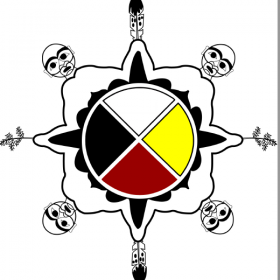
The following resources have been collected and curated by the District Team and in partnership with the Indigenous Education Department in SD61. These resources are designed to support educators as they explore land-based learning with their classrooms, and the program Exploring the Salish Sea.
Lekwungen: Place to Smoke Herring Video (Oct 2020)
https://youtu.be/2_LMXSzm82k
Lekwunden Tun’exw: Learning from the Land with Songhees Elder Butch Dick (Feb 4th 2021)
The Lekwungen peoples (Songhees and Esquimalt Nations) have lived on the south island for thousands of years, with well established and culturally distinct practices and relationships with the natural world. As educators and guests to the territory, it’s important that we acknowledge the original stewards of the land. From traditional welcomes to territorial acknowledgments, ecocultural restoration to individual location, the first panel of this Bentwood Box learning series will explore what it means to live, work and play on the traditional territory of the Lekwungen peoples.
https://youtu.be/7nV8tlei_rc
John Harris Middle level webinar Series – Land Based Pedagogy including parts from interview with Butch Dick (Feb 2021)
https://youtu.be/WjhWlM3nBmc
Slides – Why do Land-based Learning with John Harris.pdf
Weaving in Indigenous Learning: February Seaquaria Office Hour (Feb 2021)
https://youtu.be/bmRlsxp2E3M
Nuts’a’maat: We Are All One with Speaker John Harris ( February 2022)
Additional Videos
Alvarez, L., Chek News, (2018.10.12), Shoreline middle school students help prepare for first ever Coast Salish pit cook at Fort Rodd Hill. Retrieved 2019.11.05. Duration 1:42m Shoreline middle school students help prepare for first ever Coast Salish pit cook at Fort Rodd Hill
Fisherman’s Wharf – Victoria Official, 2015-06-08, World Oceans Day Fishermans Wharf Victoria BC, Sea creature names in Lekwungen Dialect! Retrieved 2015.06.08 Duration 1:09m Video Link Here
Sxwithul’txw, S., Channeldown2earth, 2010.06.18, Down2Earth 1.3 – Cheryl Bryce (Lekwammen) Retrieved 2019.11.05 Duration 6:25m
https://youtu.be/PKTxP_zy_mA
Additional Websites
- Anthony, W. (n.d.). MyMaps & My UVic Journey Inspirations … Retrieved June 04, 2019, from Website: My Seasonal Round-about @ UVic
- First Nations Education Steering Committee (FNESC). (n.d.). Retrieved from Website: First Nations Education Steering Committee
- Fpcc. (n.d.). HUL’Q’UMI’NUM’ Home Page. Retrieved from Website: SENĆOŦEN Home | Explore | FirstVoices
- Montler, T. (n.d.). Retrieved June 05, 2019, from Website: SENĆOŦEN Word List: English Index
- Link: Challenging Racist “British Columbia”: 150 Years and Counting – “150 Years and Counting (150YC) is a new open-access, multi-media resource that documents how this recent cycle of anti-racist activism is part of a broader history of Indigenous, Black and other racialized communities challenging white supremacy for over 150 years – particularly since 1871 when BC joined Canada.”
- Link: Open Science Beyond Open Access: For and with communities: A step towards the decolonization of knowledge: July 2020 article prepared for the Canadian Commission for UNESCO by Leslie Chan, Budd Hall, Florence Piron, Rajesh Tandon and Lorna Williams
- Link: Whose Land is it? – Feb 2020 BC Studies article by John Price and Nick Claxton
- Office of Indigenous Academic and Community Engagement (UVic) Website Here
- World Fisheries Trust Website Here
- PEPÁḴEṈ HÁUTW̱ Foundation Website Here
- W̱SÁNEĆ School Board Website Here
- Songhees Nation Website Here
- Esquimalt Nation: Community Engagement Website Here
- NSERC Website Here
Additional Resources
-
- ied.sd61.bc.ca/teacher-resources
- Our Resources – Living Lab Project at University Of Victoria (UVic)
- Learning from The Land: Why Indigenous Land-Based Pedagogy Matters | Gabriel Dumont Institute
- Signs of Lekwungen Spindle Whorl – Brochure – PDF Download
- Land for Healing: Developing a First Nations Land-based Service Delivery Model – PDF Document
- SṈIDȻEȽ Restoration Project – Sea Change Marine Conservation Society Website
- Living Lab Plant & Marine Guides 2021 – PDF Download
- Living Lab Brochure – 22 March 2020 – PDF Download
- Living Lab Resource Inventory (2019) – PDF Download
- ȾIKEL: A W̱SÁNEĆ Restoration Project – 2018-2021 – PDF Download
- Songhees Youth Trip Report (2019) – PDF Download
- Songhees Living Science Lab Report (2019) – PDF Download
- Songhees Living Science Lab Report (2018) – PDF Download
- Lekwungen Reference List (2019) – Document Download
Printed Material
Bouchard, R. T., & Kennedy, D. (2008). Lekwungeeneng Classified Word List Version 1 (Master’s thesis, Victoria, March 31, 2008) (pp. 1-178). Victoria: First Peoples̓ Heritage, Language and Culture Council.
Bryce, C. (2014, February 28). [Cee Bee Salish Plant Names]. Unpublished raw data.
Gertz, D. B., Chemainus First Nation, Nanaimo First Nations, Nanoose First Nation, First Nations Education Services, & SD 68. (1997). Hulquminum Words, an English to Hulquminum and Hulquminum to English Dictionary. Retrieved June 7, 2019, from website: Hul’q’umi’num’ to English Dictionary – Indigenous Education
Hulquminum Treaty Group. (2011). Ecosystem guide: a Hulquminum language guide to plants and animals of southern Vancouver Island, the Gulf Islands and the Salish Sea. Ladysmith, BC.
Mitchell, M. R. (1968). A Dictionary of Songish, a Dialect of Straits Salish (Master’s thesis, University of Victoria, 1968) (pp. 1-146). Victoria: University of Victoria.
Montler, T. (2018). SENĆOŦEN: a Dictionary of the Saanich language. Seattle: University of Washington Press.
School of Child and Youth Care, University of Victoria. (1999). Lekwungen Then & Now. Victoria, B.C. Download PDF here
Snively, G., & Williams, W. L. (2016). Knowing Home: Braiding Indigenous Science with Western Science, Book 1. Victoria, BC: University of Victoria. Download (Choose your format) pressbooks.bccampus.ca/knowinghome/

